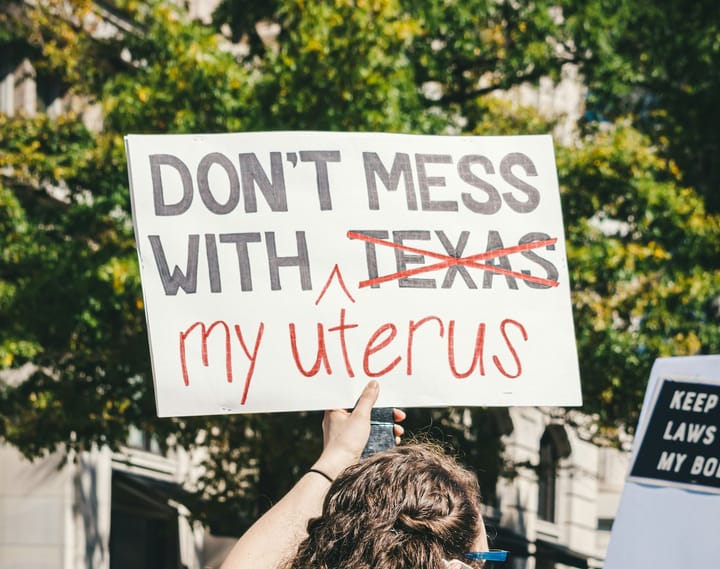Birth Control Is Now Easier To Get: Here’s The Facts

With the recent news that Opill, the first ever over-the-counter birth control is now available to purchase, the Texas Signal wanted to discuss what Texans should know about this common and safe form of contraception. We spoke with Dr. Bhavik Kumar, a Houston physician who is a member of The Committee to Protect Health Care, a national organization of doctors and advocates that want to expand access to quality and affordable health care. Dr. Kumar is also the Co-Chair of the Committee’s Reproductive Freedom Taskforce.
This interview has been edited for clarity and length.
The first FDA-approved over-the-counter birth control, Opill, is now available in the United States. What should we know about it?
This is a huge milestone. Opill is a purchase-only form of oral contraception or birth control. It’s going to be available [at stores] soon. It’s currently available online or you can get it through Amazon or other online retailers. It’s safe for the vast majority of people of reproductive age to use without any medical supervision. It’s over the counter so you don’t have to make an appointment anywhere, you don’t have to have any kind of exam or test. The main concerns would be if you have or have had breast cancer in the last five years or liver disease.
And this birth control is effective?
It’s extremely effective when taken once a day around the same time. Some studies have shown it to be up to 95 percent effective. [Opill] costs about $20 a month, and if you buy a three-month supply, I believe it’s just $50. For some people that might be out of reach. The company that makes the medication has announced they will have some cost saving program.
Many anti-choice organizations and advocates have seemingly been campaigning against birth control. I’ve seen people linking it to silly things like premature aging or impacting a person’s sexuality. But then there’s also some serious medical fearmongering. Does that concern you?
I think it is very common to hear from patients that they have looked at things on the internet and they ask me questions rooted in misinformation. It’s understandable because they see these things on what seem like legitimate websites. Sometimes you can [also] go to these crisis pregnancy centers that are fake clinics designed to dissuade people from having abortions but also can provide misinformation on contraceptives. I spend a lot of time talking to patients about what we know from robust studies that are reviewed by thousands of people. It’s alarming as a physician in Texas, where there’s so much misinformation and stigma not only on abortion but also contraception. We spend a lot of time dispelling that misinformation so people can have the right information to make the decisions that are best for them. It’s unfortunate these groups are out there to mislead people.
This is a common criticism of abortion bans. It’s best for people to make health care decisions with their doctor.
The best way to get the most accurate information is to have a conversation with your health care provider and to avoid a lot of things you see on the internet or in these crisis pregnancy centers.
Back to birth control, this can also treat other conditions not related to pregnancy prevention?
There can me some other medical use of contraceptives. The one that comes to mind is painful periods and endometriosis. But of course anybody who is trying to prevent pregnancy can use birth control safely.
Do you have any fears that access to contraception is under threat? Especially after the abortion bans and what happened with IVF in Alabama?
Absolutely. It’s the same groups of people and the same mentality that opposed abortion that has also named opposing access to birth control. These state governments especially in the south and Texas have targeted health centers that provide access to abortion, but also birth control, and STI treatments. They have targeted vulnerable populations such as teens, folks that have Medicaid, and really restricted their ability to access this care. It’s certainly not something in the future, but it’s something that’s been happening for decades. With the way things are going and how much more bold these groups have become especially in the wake of Dobbs, they are beginning to target other things. We’ve seen it with IVF. We’ve seen some targeting [of medication] that prevents HIV known as PrEP. I think it’s only a matter of time before they become more aggressive in people’s ability to access birth control, especially as we see some wins with Opill. I think it’s going to give them more impetus to want to restrict a person’s ability to access birth control.
Any other thoughts you’d like to share? Especially about efforts to target birth control?
It just makes me think about the reality in our country especially post Dobbs. Texas and many in the states in South no longer have access to abortion. Some of these states have the highest rates of maternal mortality. The United States as a whole has the highest rate of maternal mortality among developed countries. We see this being higher among Black women. When we’re targeting access to birth control, limiting people’s options, these things will only worsen when people can’t prevent themselves from becoming pregnant. When they don’t have access to medically accurate information, they are at a disadvantage. I really worry about what happens to each individual’s health, but also what happens overall for maternal mortality.



Comments ()